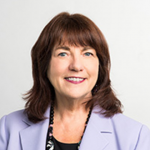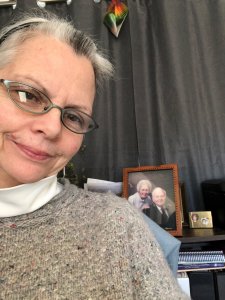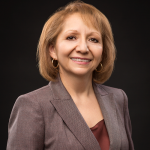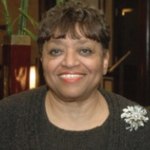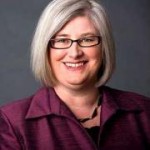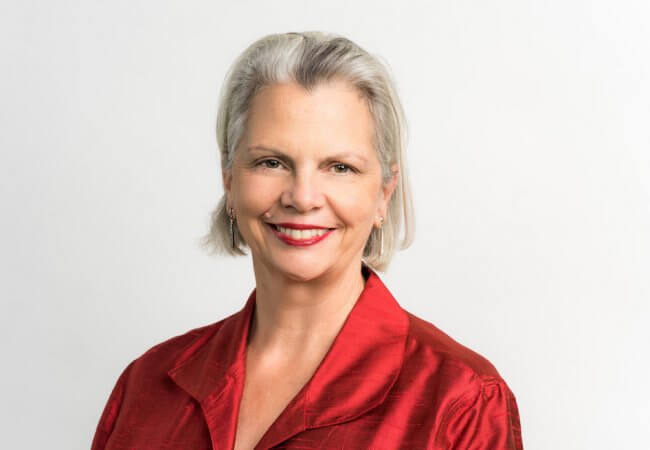
Oct 05, 2021
Quinn to Become Honorary American Academy of Nursing Fellow
Each year, the American Academy of Nursing (AAN) choses a select group of people from outside the nursing profession to become honorary fellows. This year, AAN will honor Winifred V. Quinn, PhD, FAANP(h), director of advocacy and consumer affairs for the Center to Champion Nursing in America, for her work advancing nurses’ rights to serve patients to the full extent of their education and training. CCNA is an initiative of AARP Foundation, AARP and the Robert Wood Johnson Foundation and runs the Future of Nursing: Campaign for Action, an initiative of the same organizations.
Quinn “is a dedicated nursing champion whose commitment has led to numerous, highly influential policy changes that have directly improved the profession,” AAN said in announcing her honorary designation. “Her unwavering passion is evidenced in her incredibly impactful work to advance nursing education, eliminate practice barriers, and promote workforce development.”
For more than a decade, Quinn and CCNA have sought to modernize state laws and regulations to increase patients’ access to care. This includes working for full practice authority, which is the right of a nurse practitioner to do things like evaluate patients or prescribe medications without contracting with a physician.
Since CCNA launched in 2007, 13 states have granted full practice authority to nurse practitioners and made other efforts to fully modernize their nursing regulations. Seventeen other states have also made varying degrees of progress toward improving their laws regulating nursing practice.
“Truly Win has been a force of nature in the work of the past decade to improve consumers’ access to care,” said Susan Reinhard, RN, PhD, FAAN, senior vice president and director of AARP Public Policy Institute, and chief strategist of CCNA and family caregiving initiatives. “We could not have made the progress we have without her and her ability to work closely with nurses and other stakeholders.”
Quinn also leads the Campaign’s work around improving diversity in the nursing workforce so nursing better reflects the communities it serves.
Quinn’s journey toward advocating for nurses began with her own experiences as a caregiver. When taking care of her parents through a series of challenging health events, she found it necessary to learn the intricacies of Medicaid, Medicare, and the entire field of long-term services and supports. This ignited a passion that led to a PhD in Health Communication from Rutgers University School of Communication and Information.
At Rutgers, Reinhard recommended Quinn go to AARP New Jersey to advocate for patients at the state level. But her first big effort focusing on nurses specifically came in 2008, when physicians were opposing the push for full practice authority in Colorado.
“I immediately transferred my experience as a family caregiver and the frustrations at the shortcomings of policy that were problematic for my father accessing care,” Quinn said. “I saw I could connect that to a broader range of primary care issues and nurse practitioners. That’s why I argued that this wasn’t a physician issue or a nursing issue, but an access-to-care issue.”
Since then, advocating for nurses has been the main focus of Quinn’s work. Her efforts have expanded into nursing education, diversity, and other vital concerns for the profession.
“I see nurses as the engineers of health care,” Quinn said. “They are always adapting to whatever they have in front of them, innovating to get the work done or using their analytical skills to solve a problem in a new way. … I love being a nurse champion because I can help bring forth the skills, wisdom, talent, and dedication that nurses have. There has been no time when that has been more evident than during the COVID-19 pandemic.”
Quinn’s work also embraces health equity, an increasingly important concept to the future of nursing as highlighted in the recent National Academy of Medicine report. The demographics of the nursing profession, she said, must more closely match those of the patients being served. The Campaign for Action’s progress toward this goal is highlighted in its regular dashboard updates. Antonia Villarruel, PhD, RN, FAAN, professor and Margaret Bond Simon Dean of Nursing at the University of Pennsylvania School of Nursing, led Quinn’s AAN nominating process. Villarruel is also a co-lead of the Campaign for Action’s Strategic Advisory Committee, which helps shape its strategic vision.
Villarruel emphasized Quinn’s ability to help various constituencies understand why supporting nurses is in their best interest. “Not only has Win been a caregiver who can speak compassionately to the value of nursing care, but she also makes a convincing business case for nursing,” Villarruel said. “Her policy expertise and her vision help us know the levers that we need to pull to get things done.”
Barbara Nichols, DNSc(h), MS, RN, FAAN, the first Black president of the American Nurses Association, was another of Quinn’s nominators. She was struck by Quinn’s passion for diversity in the nursing profession before others were focused on it.
“She was advocating for inclusivity before it was even a standard phrase,” Nichols said. “Her authenticity in that area is outstanding.”
Nichols added that Quinn’s unique impact shows the importance of attracting allies from outside the profession. “In order to advance the practice of nursing, we need champions besides nurses,” she said. “Win has just been a fabulous champion in that regard.”
Quinn not only serves as one of those allies, but has made it her mission to attract others.
Heather M. Young, PhD, RN, FAAN, founding dean emerita of the Betty Irene Moore School of Nursing at UC Davis who was also a nominator, emphasized the power of the network she has assembled on nurses’ behalf.
“Win is always willing to facilitate connections and resources to make good things happen,” Young said. “She is able to inspire collective action that results in great impact because of her magnetic personality, strong network, and her vision.”
Reflecting on what the honorary designation might have meant to her parents, Quinn shared her resolve to keep up her work on behalf of nurses
“I miss them very much. I would say thank you for raising me in the way you did to care about people,” she said. “This award is so important, but I wish I could do more to help people in the circumstances my parents experienced. Nurses, nurse researchers and nursing policies could make that happen.”
The honorary designations will be officially presented at AAN’s Health Policy Conference, which will be held October 7-9. The other honorees are Harriet Udin Aronow, David Auerbach, and Felicia Marie Knaul.
Benedict-Nelson is a freelance writer and Campaign contributor.

